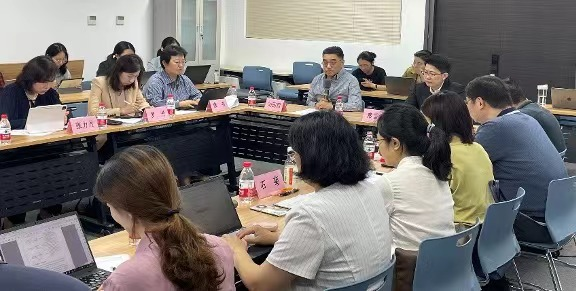“The relationship between national health and economic growth is a significant theme in human development. Further clarifying the mechanisms by which health human capital, the health industry, pharmaceutical innovation, and economic growth interact can improve the effectiveness of policy interventions. This is imperative for promoting the development strategy of ‘Healthy China.’” On June 25th, Liu Guoen, Changjiang Scholar Professor at Peking University and Director of the Institute for Global Health and Development (IGHD), made this statement in an interview with the People's Daily Health Client after the "Health and Growth Expert Seminar."

Health as human capital has dual value, and the importance of health indicators
Dr. Yang Hanmo from the Harvard T.H. Chan School of Public Health pointed out that according to the "Classification of Health Industries" released by the National Bureau of Statistics in 2019, the scope of the health industry can be defined as thirteen major categories, including medical and health services, health affairs, health environmental management, and research and technology services. Research conducted by the Peking University team found that in cities with higher levels of economic development, enterprises related to research and technology in the health industry grow at a faster pace.
Dr. Liu Meng from IGHD pointed out that viewing health as human capital has dual value. Health itself can bring utility to individuals. Meanwhile, health as human capital can increase the total time individuals spend on productive activities.
Qin Xuezhen, Associate Dean of the School of Economics at Peking University and Associate Dean of IGHD, emphasized that from the perspective of human capital, besides its capital characteristics, health human capital must directly contribute to GDP production. The health measurement indicators selected in empirical research can be indicators of the health of the retired labor force at the end of the year.
In response, Associate Professor Zhou Qin from the School of Public Administration at Renmin University of China suggested that the construction of a health indicator system could try the Delphi method, measuring the level of health from three aspects: health status, health behaviors and environmental factors, and health care resources.
Exploring the impact of health on the economy from the perspective of major chronic diseases; the medical industry makes a greater contribution to development during economic downturns
Ms. Kang Wei, Executive Director of the Pharmaceutical Research and Development Industry Committee of the China Association of Foreign Investment Enterprises, believes that exploring the impact of health on economic growth from the perspective of major diseases is more forward-looking.
Professor Liu believes that when examining the impact of health on economic growth, it is possible to consider specific major chronic diseases. If only a single indicator is considered for its impact on economic growth, there are too many interfering factors to judge. Mechanistically, the higher the incidence of major diseases, the greater the obstacles to local economic development. This is not only because patients lose productivity, but also because their family members lose productivity due to caring for patients, and enterprises reduce productivity due to the departure of skilled workers, inevitably leading to a decline in the overall economic production and development.
Furthermore, Professor Liu pointed out that the role of the pharmaceutical industry in economic growth varies. During economic downturns, while employment in other industries decline, the medical industry, due to its specificity, is less likely to conduct large-scale layoffs. Therefore, it may make a greater contribution to economic development during unstable periods.
(Interpreted by Waverly Shi)